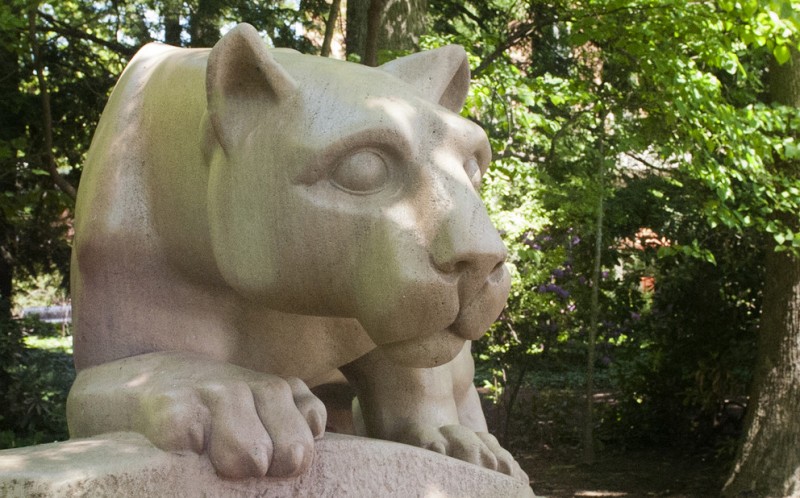UNIVERSITY PARK – The Nittany Lion Shrine, beloved Penn State landmark and the most photographed location on the University Park campus, is once again open for visitors after being closed for renovations since May.
Seniors of Penn State’s class of 2012 voted to improve and enhance the area surrounding the statue as the class gift. The shrine originally is a gift of the class of 1940.
Enhancements to the area include improved lighting, accessibility and landscaping. “The overall impact of this class gift will be to make the shrine and its setting more visitor-friendly and more attractive,” said Dwayne Rush, project manager in the Office of Physical Plant.
The location and elevation of the lion remains the same as it has been for the last 70 years.
A careful design process, informed by historic research, revealed needs and identified specific enhancements to the shrine’s functionality and aesthetics. Previously the statue rested on a mulched mound which was not readily accessible to all visitors and had a detrimental impact on the health of the nearby trees. The base of the lion also had deteriorated, with frequent repairs providing only a temporary and unattractive solution, according to Rush.
The new design includes an accessible ramp, steps and new sidewalks to connect to existing walkways. Stone from Nittany Mountain was used to fix the base of the statue, to provide informal seating for visitors, support the accessible ramp and protect the root system of the surrounding oak trees. Brighter and more efficient LED lighting provides improved security and strengthens the aesthetic environment of the shrine, enhancing nighttime photography.
An interpretive sign also has been added to describe the Nittany Lion’s origin — Penn State third baseman Joe Mason’s impromptu recommendation of the “dignified, courageous, magnificent … Nittany Mountain Lion” as the University’s mascot — and the statue’s design and sculpture from a 13-ton block of limestone by Heinz Warneke in 1942.
See the renovated shrine as Derek Kalp, landscape architect in the Office of Physical Plant, and Philip Hawk, master stonemason, discuss the project in this video:
